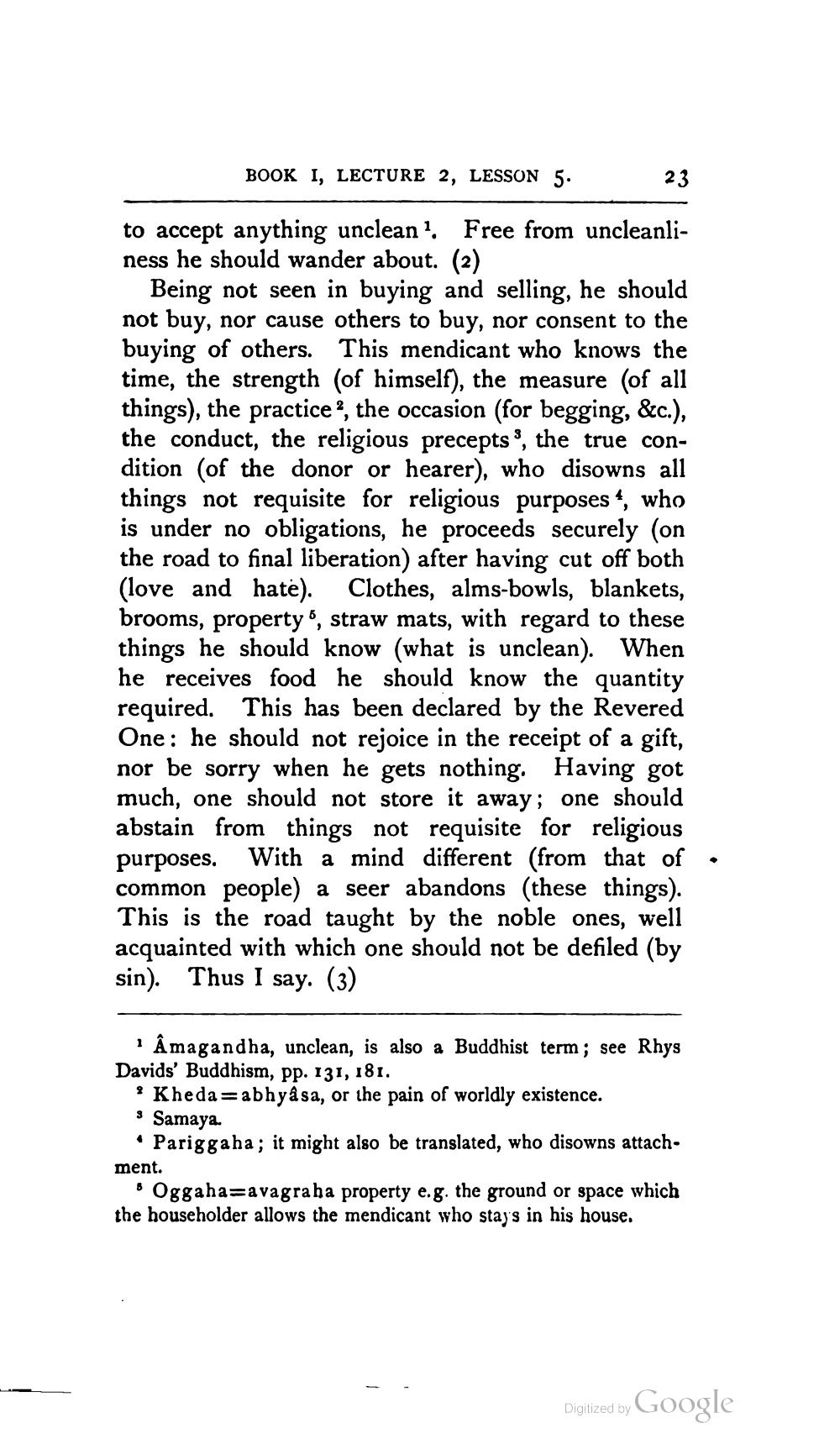________________
BOOK I, LECTURE 2, LESSON 5. 23 to accept anything unclean". Free from uncleanliness he should wander about. (2)
Being not seen in buying and selling, he should not buy, nor cause others to buy, nor consent to the buying of others. This mendicant who knows the time, the strength (of himself), the measure (of all things), the practice?, the occasion (for begging, &c.), the conduct, the religious precepts, the true condition (of the donor or hearer), who disowns all things not requisite for religious purposes 4, who is under no obligations, he proceeds securely (on the road to final liberation) after having cut off both (love and hate). Clothes, alms-bowls, blankets, brooms, property 6, straw mats, with regard to these things he should know (what is unclean). When he receives food he should know the quantity required. This has been declared by the Revered One: he should not rejoice in the receipt of a gift, nor be sorry when he gets nothing. Having got much, one should not store it away; one should abstain from things not requisite for religious purposes. With a mind different (from that of . common people) a seer abandons (these things). This is the road taught by the noble ones, well acquainted with which one should not be defiled (by sin). Thus I say. (3)
· Âmagandha, unclean, is also a Buddhist term; see Rhys Davids' Buddhism, pp. 131, 181.
Kheda=abhyasa, or the pain of worldly existence. s Samaya.
• Pariggaha; it might also be translated, who disowns attachment.
Oggaha=avagraha property e.g. the ground or space which the householder allows the mendicant who stays in his house.
Digitized by Google




